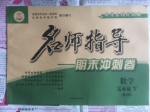
—Have a cup of coffee?
—________, though as a rule I don't drink after dinner.
A. What I insist B. Don't you insist C. Once you insist D. If you insist
 名师指导期末冲刺卷系列答案
名师指导期末冲刺卷系列答案 开心蛙口算题卡系列答案
开心蛙口算题卡系列答案科目:高中英语 来源:英语教研室 题型:050
Curious to know how her daughter would use the phone, Jane Bidder, the mother, followed Lucy to the school bus in the morning. The bus seats 20, of whom half have a mobile phone. One rings and several adolescent(青少年)owners fumble(摸索)with their bags.
Many parents have just come to realize that the mobile phone is no longer only for traveling business-men—it is as likely to be found in school bags.
The mobile phone seems to have become something essential for today's teens in Britain, according to a survey(调查)published last week, by NOP, a leading market research company in Britain. Research found that 66 percent of 16-year-old kids now have access to a mobile phone.
The mobile phone has been turned into a secret messaging service by teen users. They are talking on the mobile and their parents are not able to eavesdrop on the second line.
The interview with 2 019 young people aged 7 to 16 found that they favor the text messaging services because they offer a secret way of keeping in touch. The days of secret notes in the classroom are dying out.
For example, “cu” means “see you”; “lol”means “laugh out loud”;and “2nite” is an abbreviation(缩略语)of “tonight”. All these are based on shorthand phrases used on the Internet.
Many schools have banned(禁止)students using mobile phones.
Scientists believe children are especially vulnerable(易受伤害的)to the mobile radiation(放射线).
1. The story of Lucy is told to show us .
A. British parents meet their children’s needs whatever they are
B. British kids have good relationships with their parents
C. how British parents accept the truth of teenagers owning a mobile phone
D. why every child gets a mobile phone as a birthday present in UK
2. What would be the best title for this news story?
A. School Bans Mobile Phones
B. Parents’ Curiosity about Children Using Mobiles
C. Mobile Popularity among UK Teens
D. Secret Messages Popular among Kids in UK
3. The underlined word “eavesdrop” means .
A. join in activity B. interrupt rudely
C. watch carefully D. listen secretly
4. Interviews discover children like sending messages instead of .
A. calling each other B. writing to each other
C. playing games on line D. greeting each other
查看答案和解析>>
科目:高中英语 来源: 题型:051
London—“Everyone else has one!” Lucy declared to her parents, trying to get a mobile phone as a gift for her 14th birthday. Her parents gave in.
Curious to know how her daughter would use the phone, Jane Bidder, the mother, followed Lucy to the school bus in the morning. The bus seats 20, of whom half have a mobile phone. One rings and several adolescent(青少年)owners fumble(摸索)with their bags.
Many parents have just come to realize that the mobile phone is no longer only for traveling business-men—it is as likely to be found in school bags.
The mobile phone seems to have become something essential for today's teens in Britain, according to a survey(调查)published last week, by NOP, a leading market research company in Britain. Research found that 66 percent of 16-year-old kids now have access to a mobile phone.
The mobile phone has been turned into a secret messaging service by teen users. They are talking on the mobile and their parents are not able to eavesdrop on the second line.
The interview with 2 019 young people aged 7 to 16 found that they favor the text messaging services because they offer a secret way of keeping in touch. The days of secret notes in the classroom are dying out.
For example, “cu” means “see you”; “lol”means “laugh out loud”;and “2nite” is an abbreviation(缩略语)of “tonight”. All these are based on shorthand phrases used on the Internet.
Many schools have banned(禁止)students using mobile phones.
Scientists believe children are especially vulnerable(易受伤害的)to the mobile radiation(放射线).
1. The story of Lucy is told to show us .
A. British parents meet their children’s needs whatever they are
B. British kids have good relationships with their parents
C. how British parents accept the truth of teenagers owning a mobile phone
D. why every child gets a mobile phone as a birthday present in UK
2. What would be the best title for this news story?
A. School Bans Mobile Phones
B. Parents’ Curiosity about Children Using Mobiles
C. Mobile Popularity among UK Teens
D. Secret Messages Popular among Kids in UK
3. The underlined word “eavesdrop” means .
A. join in activity B. interrupt rudely
C. watch carefully D. listen secretly
4. Interviews discover children like sending messages instead of .
A. calling each other B. writing to each other
C. playing games on line D. greeting each other
查看答案和解析>>
科目:高中英语 来源:全优设计必修二英语人教版 人教版 题型:050
| |||||||||||||||||||||||||||||||||||||||||||||||||||||||||||
查看答案和解析>>
科目:高中英语 来源:导学必修一英语北师版 北师版 题型:050
| |||||||||||||||||||||||||||||||||||||||||||||||||||||||||||
查看答案和解析>>
科目:高中英语 来源:山东省济南市2012届高三5月针对性训练(三模)英语试题 题型:050
| |||||||||||||||||||||||||||||||||||||||||||||||||||||||||||||||||||||||||
查看答案和解析>>
湖北省互联网违法和不良信息举报平台 | 网上有害信息举报专区 | 电信诈骗举报专区 | 涉历史虚无主义有害信息举报专区 | 涉企侵权举报专区
违法和不良信息举报电话:027-86699610 举报邮箱:58377363@163.com